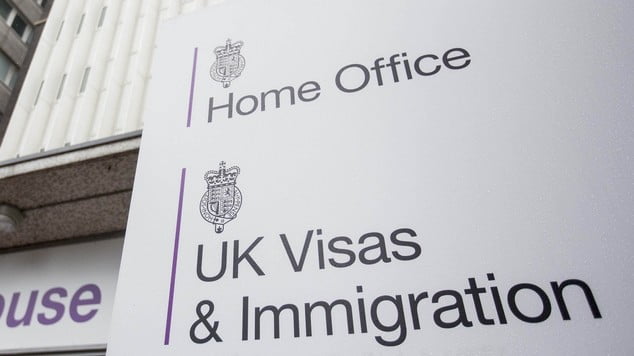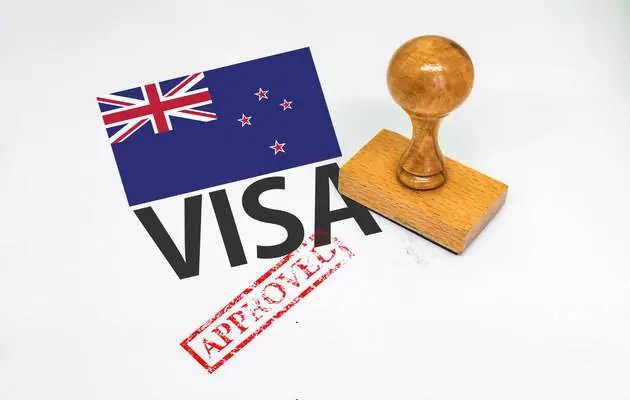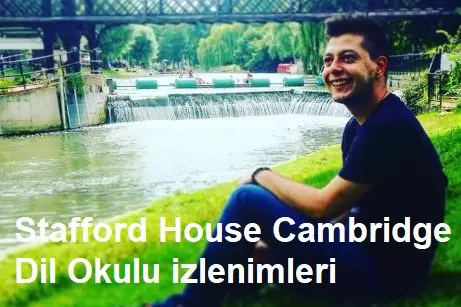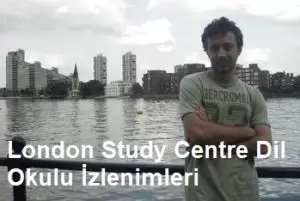A talk with a law academic on LLM in the UK
Dr Lawrence Schäfer, faculty of the law department at Oxford Brookes University, replies our questions on legal education in the UK and offers some tips for prospective LLM applicants.
This week we welcome Dr Lawrence Schäfer from Oxford Brookes University. Lawrence is a law academic who has collaborative research links with Bilgi University. During his last visit to Turkey, Lawrence visited our office and we talked on legal education in the UK. Since he is well versed in both the Turkish and UK education systems, we made a really useful interview session with Lawrence.
We especially asked about LLM programmes to Lawrence. (The Master of Laws is an advanced law degree that allows someone to specialize in a particular area of law. It is commonly abbreviated LL.M. (also LLM or LL.M) from its Latin name, Legum Magister. (For female students, the less common variant Legum Magistra may also be used. ALLM@, Wikipedia,(R) Online The Free Encyclopedia 2005, http://en.wikipedia.org/wiki/LLM (C) 2005, All Rights Reserved)
In our country, the number of universities offering law degrees is 26 now, and more are scheduled to open in the near future. Legal education is a four-year UG degree in Turkey and applicants are placed according to their score in a central university examination. Studying at law school is as hard as getting into and each year over 7 thousand students graduate from law schools. By 2006, a bar examination will be conducted for law school graduates which will be administrated by the General Assembly of Bar Associations.
As far as job opportunities are concerned, in today’s competitive job market, many law school graduates are looking for ways to distinguish themselves from the pack and LLM degree is accepted as an asset even by the average law firms. LLM degree is becoming a pre-requisite of qualifying as a lawyer and the average law firms would regard a masters degree in law as indicator that the candidate has any additional aptitude. Finally, an LLM from foreign universities can help in securing a position in a firm.

Q. Could you inform us about Oxford Brookes University and your law school. We also would like to learn what distinguishes the Brookes Department of Law from other law schools?
Oxford Brookes has, for the past five years, been ranked by the Sunday Times Good University Guide as the “best new university” in the UK. We are confident that our LLM programme is a key part of the University’s success.
Our LL.M. programme is small enough for students to get to know one another and their tutors well and to develop strong working relationships. This is particularly important for undertaking the Dissertation, the last part of the LLM, where students are expected to commit about 600 hours of independent research. It also provides the opportunity for a good deal of specialization, thus allowing students to direct their studies towards their career interests.
Our students are drawn from all parts of the world and we see this as a great strength. Last year, we had students from Jordan, Bahrain, Syria, Palestine, Germany, Norway, Italy, Cyprus, the UK, Kenya, Uganda, Sudan, Brazil, Japan and China! Many had work experience in a variety of positions and fields. Similarly, our lecturers represent a variety of nationalities B including British, Canadian, South African and Chinese; and our research interests reflect this diversity. My research, for example, is concerned with the impact of the European Convention on Human Rights and other human rights norms on Turkish family law. Other areas of research amongst my colleagues include specializations in South African human rights law; the World Bank; China-EU trade relationships; international labour law; the human rights responsibilities of transnational corporations, and so on. We are, in every respect, a diverse group!
In addition to academic teaching and research, we try to provide a wide range of extra-curricular activities. Through our Student Link Co-Ordinator, students have taken day visits to the local courts, to Parliament. They also have the opportunity to join the internationally-renowned Oxford Union. Last year, for the first time, a team was chosen to represent Oxford Brookes University at the Jessup Moot Court Competition, where we performed commendably within the British rounds. This is almost certainly the most famous international mooting competition between law students. Teams act as counsel in a dispute between two hypothetical states and argue on the basis of a complex statement of facts. Our students also have many opportunities to attend events hosted by Oxford University. Last year, these included a public speech by Recep Tayyip Erdoðan.
Much is also arranged by the students themselves through the elected student representatives. Last year’s cohort was particularly active, with the result that most members of the programme came to know each other really well. We see this social dimension as a fundamental part of our programme, providing our students with opportunities to meet colleagues from all over the world.
Quite apart from its academic importance, Oxford is undoubtedly one the loveliest cities in England. Its cultural richness and beauty makes it an exciting place to spend a year. I am confident that our international students enjoy their time here greatly. We are also only an hour from Heathrow Airport and about 90 minutes from the centre of London. In both cases, there are frequent inexpensive bus connections.
Q. What is the standard entry requirements for the LLM? Who will judge the applicants admissibility based on which criteria? If the students don’t enclose the TOEFL/IELTS score, can they get a conditional offer?
Applicants must normally have (or be expecting to obtain) an upper second class honours degree (or the equivalent degree standing from other countries). The degree may be in law, or in a related discipline such as International Relations, Business or Politics.
If your first or main language is not English, an IELTS minimum score of 6.5 or TOEFL minimum score of 575 (paper-based) or 232 (computer-based) is required. For students who do not have the language requirements, the International Centre for English Language Studies (ICELS) at Oxford Brookes offers a number of preparation courses for study at master’s level. These include the one-year Masters Preparation Diploma, which is jointly taught by ICELS and the Department of Law, and is designed to improve students‘ language and academic skills to a level required for master’s study. Or shorter intensive summer school courses are available for students who only need to improve their English level. For further information, please contact ICELS at icels@brookes.ac.uk, tel: +44 (0) 1865 483874 or visit ICELS web site at www.brookes.ac.uk/icels.
We do make conditional offers where students have not yet reached a sufficient level of English competence, but where we believe they will do so by the commencement of their degree here.
Q. What is the deadline for applications?
Applications can be made at any time up to the beginning of the First Semester of study, which is usually the third week of September. However, we do strongly advise candidates for our programme to make early applications. Application forms are available from:
LLM Course Administrator
School of Social Sciences & Law
Oxford Brookes University
Gipsy Lane ,
Oxford OX3 0BP
Tel: +44 (0) 1865 484931
Fax: +44 (0) 1865 484930
e-mail:
pglaw@brookes.ac.uk
Q. It is really hard to maintain higher GPAs at law schools in Turkey. Do you take into account if the applicant is having a work experience in addition to his/her LLB. And what about the nature of work experience, duration or quality?
Every application is considered on its own merits and GPAs will be viewed in the light of a candidate’s overall performance, experience and potential. This does mean that a candidate could be offered a place where he has suitable professional or academic experience to make up for grades that are slightly lower than what we would normally require. The overriding consideration for us is whether a candidate appears to have the ability to participate meaningfully in the programme and to meet the standards required to take the degree.
Q. About half of the total number of law schools are state universities in Turkey and legal education is taught in Turkish. Hence many law graduates may need ESL programme prior to their main academic course. Do you offer an English Language courses?
Most of our students do not speak English as their first language, so we are very familiar with the difficulties confronted by these students. Oxford Brookes offers good support for students in this regard, both before and during the programme. ICELS, our International Centre for English Language Studies, offers a number of courses for students whose English competence is not at the minimum level we require. For further details, please see http://www.brookes.ac.uk/icels/!
Q. How much are the tuition fees for the LL.M?
For the 2006/2007 academic year, the fee for the full-time programme is £8850 for students from outside the EU. Our programme starts in late September and the final obligation – submitting the Dissertation – is due in mid-August. This does have the result of reducing the programme to just under eleven months, thus saving students’ living costs for one month and allowing those who so wish to take up employment from 1st September.
Q. Are there any scholarships available for clever students?
We award a prize to the top student in each year, but we do not award scholarships. However, many of our international students have come to Oxford Brookes University with scholarships, such as those awarded by the British Council, the Rhodes Trust, and the Ford Foundation, as well as scholarships awarded by funding bodies in students’ home countries.
Q. What do students study on the LLM programme, could you inform us about the content of each concentration? What courses are offered at your law school?
In the first semester, students study a comprehensive module in Public International Law. In addition, they take a module (which continues in the second semester) on Advanced Legal Research Methods. These two modules lay the academic foundation for what follows, namely, three optional modules and a compulsory dissertation of 15,000 words on a topic of the student’s choice. The three optional modules are chosen from the following: International Criminal Law; International Humanitarian Law; Nationality, Citizenship and Migration; International Banking Law; European Union Law; International Investment Law; International Environmental Law; and International Labour Law. Full details of the syllabus and the course brochure (in .pdf format) are available at
http://ssl.brookes.ac.uk/postgraduates/llm-international-law.htm.
Q. Do you offer any internship programme for your LLM graduates? Any training opportunities in the UK or in Europe?
We don’t offer an internship programme, but some of our students have gone on to internships after completing the LL.M. Recently, a number of our have secured internships at the International Criminal Tribunal for the Former Yugoslavia and the International Criminal Court in The Hague. Others go on to take the CPE law conversion diploma; and still others continue with postgraduate research degrees. We always try to alert our students to the wide range of options open to them in England and Europe. This is particularly important for students from outside the EU, and we see this as a valuable opportunity. Needless to say, we do our best to help students in obtaining these opportunities.
Q. We know that UK is a diverse country and the laws are different in England, Scotland and Northern Ireland. Can international students take bar exam to practice their job once they completed the LLM degree in the UK? What they need to practice their job in the UK?
The U.K. is in fact two quite different jurisdictions B Scotland, and England and Wales. Northern Ireland’s legal system is an extension of England’s, although with some local differences. Both in England and Scotland, there is a division between barristers (called advocates in Scotland) and solicitors. Neither can be equated completely with the role of an avukat in Turkey. England is one of the few jurisdictions where it is possible to qualify as either a barrister or a solicitor without having an English law degree: instead, it is sufficient to take the Common Professional Examination. Oxford Brookes offers a highly-regarded one-year CPE course: for further details, see
http://ssl.brookes.ac.uk/postgraduates/law-cpe.htm. A number of our students have stayed on at Brookes after the LLM. to take the CPE.
Lawrence, thank you for your time for giving your best answers to our specific questions I am sure our prospective students will be also visiting your website. (http://ssl.brookes.ac.uk/Departments/Law.html) (Where the website does not help, questions can be sent directly to the Course Director, Ms Evadné Grant (egrant@brookes.ac.uk). Lawrence will also be happy to answer your questions: lschafer@brookes.ac.uk)













